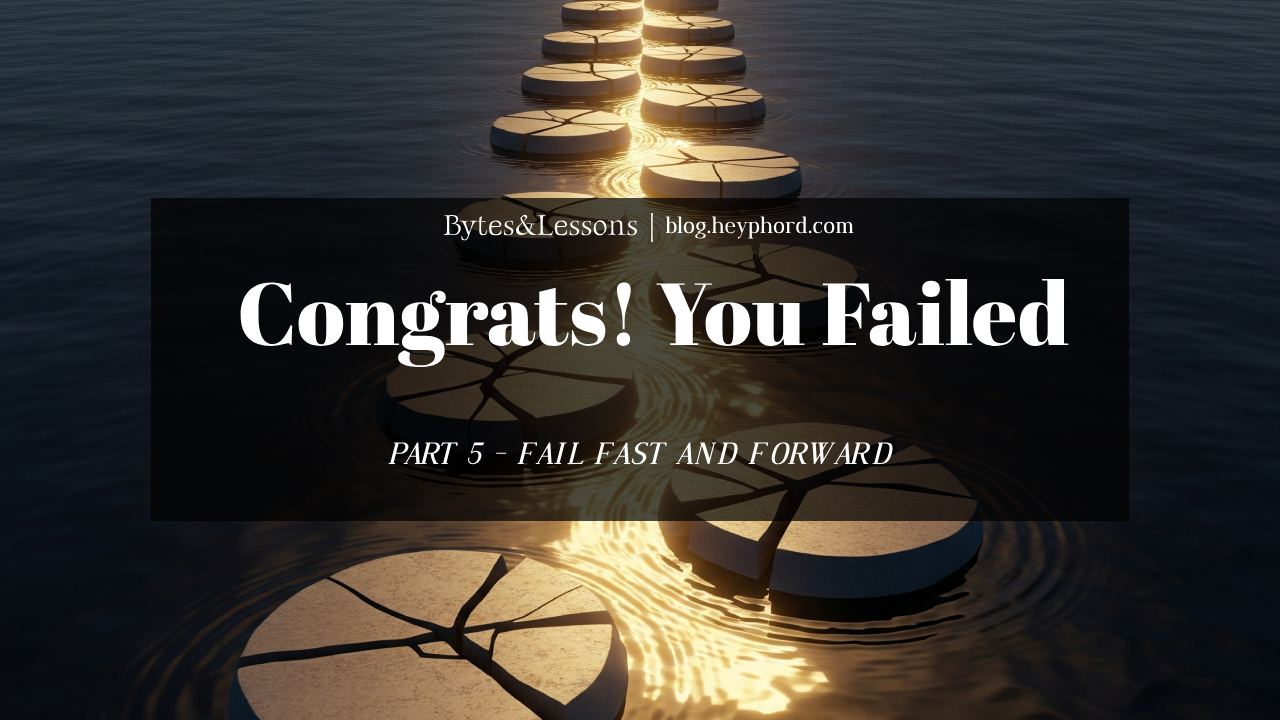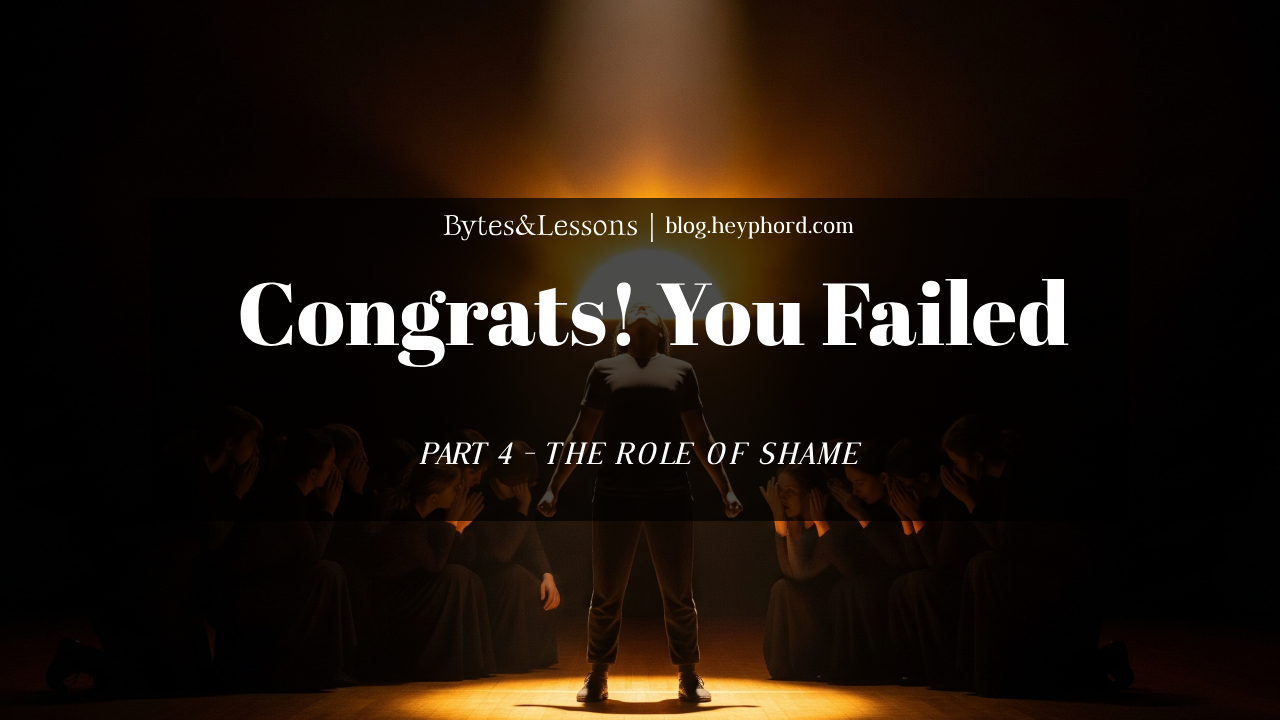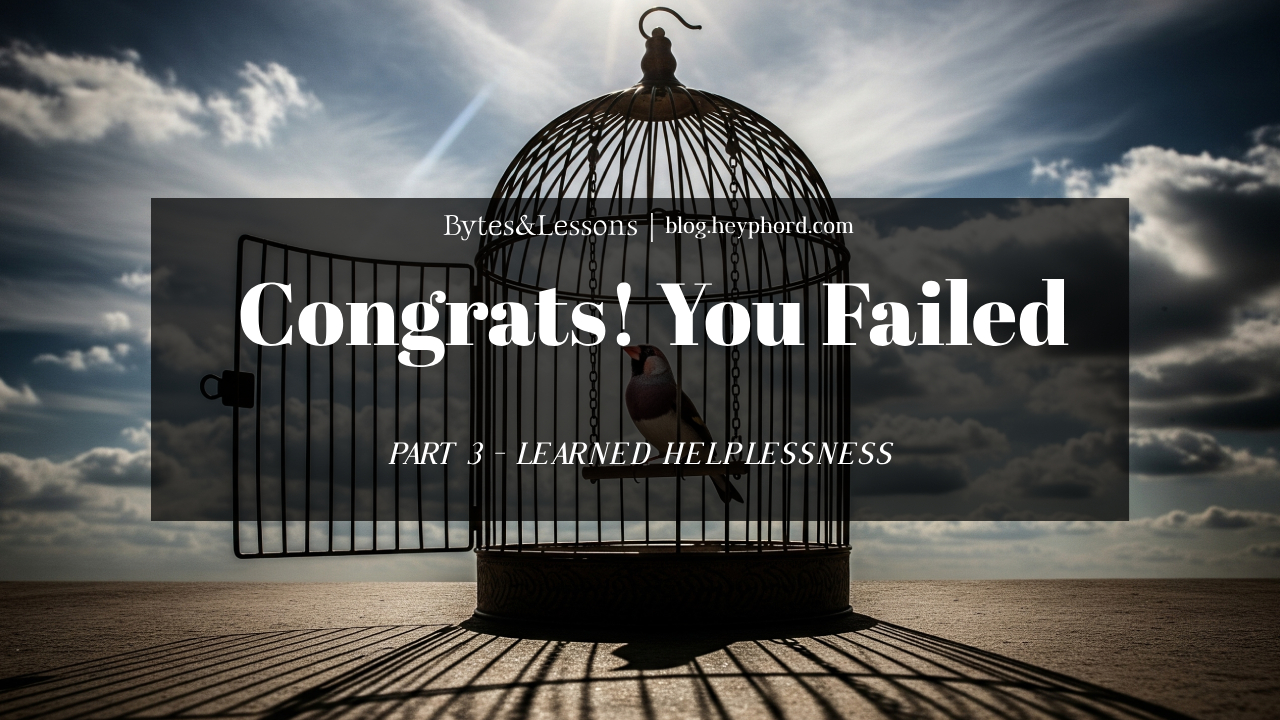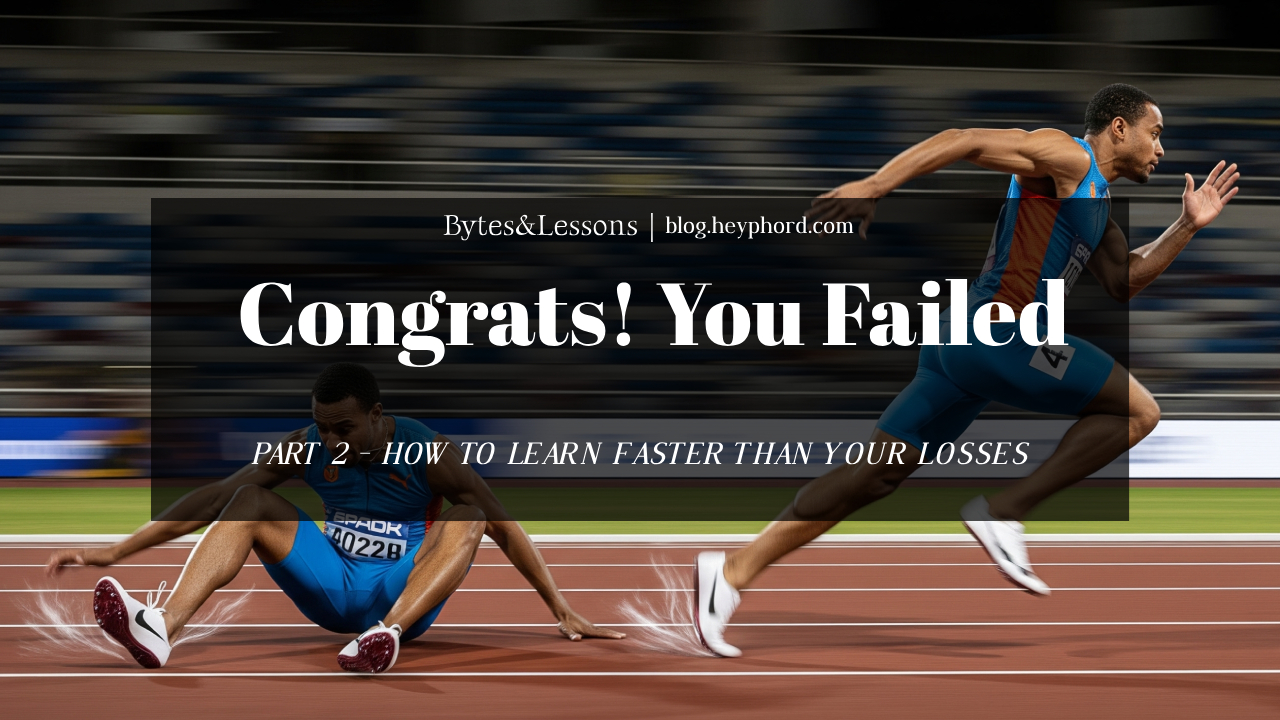Congrats! You Failed! : Part 10 - Strategy over hard work

STRATEGY OVER HARD WORK
"It's better to go slow in the right direction than to go fast in the wrong direction." ~Simon Sinek
Before we talk about hard work, let's see where strategy fits into the big picture.
- GOAL → what you want to achieve
- STRATEGY → the general direction to take to reach that GOAL
- PLAN → an actionable step-by-step breakdown of the STRATEGY
- HARD WORK → the effort you put into executing the PLAN.
Goal → Stratety → Plan → Hard work
See how the 4 are connected, and notice how hard work comes last?
It doesn't matter how intense, long, or fast you work if you are going in the wrong direction. I should probably end here since it is so obvious how hard work always supports a plan. Unfortunately, this doesn't translate in the real world. And this is more common than you think!
Most people work so hard on jobs that do not align with their career paths, or pursue long and grueling academic qualifications that do not translate to what they want to do in life.
Why we prefer hard work to strategy
In my research to understand why this doesn't translate in the real world, I discovered the following:
- Survival: Most of us have been in this situation. You cannot follow your passion if you cannot even meet your basic needs. Unfortunately, the situation worsens because it's difficult to find a profession that both provides you with income and still aligns with your goals. It becomes tempting to sacrifice your long-term goals for immediate survival, even if it traps you in the wrong direction.
- Chasing Quick Rewards: Goals and Strategies are long-term in nature, with the rewards often at the tail end. Even for those with a strategy, it is tempting to chase short-term wins that can lead to constant detours. Before you realize, you have spent the whole year doing “quick work” while completely ignoring your original strategy. These quick gains are rarely sustainable, and once they dry up, you notice you have nothing permanent and sustainable.
- Societal Pressure: Society praises hard workers more than strategic thinkers.
- For example, society may deem you as lazy when you take a career break to figure out your goal and strategy in life. So, it's easier to “look busy” with a job you don't want than to take time to strategize.
- Another example, in the Workplace, “looking busy” gets you more rewards than the one who is actually productive but doesn't make a show of it.
- Lack of facts: Every good strategy is based on facts, and the insight from the facts guides you to the easiest path to take to meet your goal. Since we don't have enough data to help choose the best path, we compensate for that by working hard instead of working smart.
Final thoughts
A Good strategy cuts down the time and energy needed to reach your goal. Without it, you are forced to resort to brute force, willpower, and endless hard work. Those resources are limited; you can't depend on them all the time.
Instead, put in the effort to get the right direction first. Build a strategy, break it down into a plan. Then pour your hard work into executing it. Do that, and your odds of failure will drastically reduce.
In the next section, we get controversial. We examine how faith can become a double-edged sword and act as a catalyst for great success and great failure
If you enjoyed this piece, stay connected with @bytesnlessons on all platforms for more insightful and thought-provoking content:
📸 Instagram: instagram.com/bytesnlessons
🐦 X (Twitter): x.com/bytesnlessons
📘 Facebook: facebook.com/bytesnessons
🎵 TikTok: tiktok.com/@bytesnlessons
💼 LinkedIn Newsletter: Bytes & Lessons




